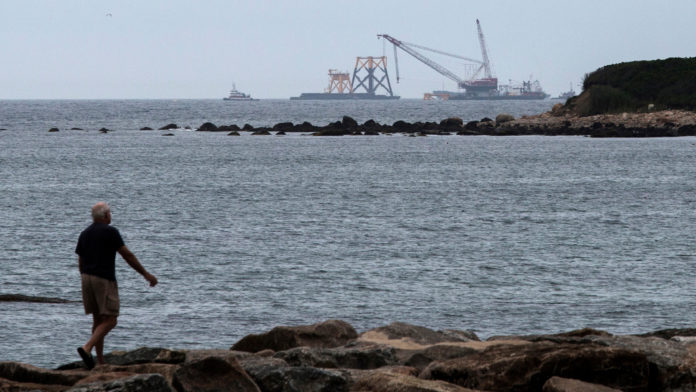
NEW YORK – The cost of building wind farms off the U.S. coast may decline as much as 55 percent within 13 years, letting developers offer clean power at rates competitive with market prices, according to a study released Tuesday by the University of Delaware.
If developers commit to a series of large projects, installing about 2,000 megawatts of capacity between 2020 and 2030 off the Massachusetts coast, they will gradually drive down costs as they gain experience, install transmission lines, upgrade infrastructure and utilize increasingly efficient components, the study found.
While offshore wind has thrived in Europe, the high costs of erecting turbines at sea has sunk most U.S. projects. Developers previously proposed wind farms off the East Coast with rates as high as 24 cents a kilowatt hour, more than double the market rate. The University of Delaware found that they could cut those costs to 12.8 cents a kilowatt-hour by 2026, and to 10.8 cents by 2029, when the industry may have installed as much as 2,000 megawatts.
The key to making offshore wind economical “is making a firm commitment to scale so the market can do its work,” Willett Kempton, a professor in the University of Delaware’s School of Marine Science and an author of the study, said in a statement.
The study, funded by the university’s Wind Power Program, used data from offshore wind developers that are looking at potential sites along the East Coast.
The study comes as Deepwater Wind LLC is building the first wind farm in the U.S., off the coast of Rhode Island. It’s scheduled to begin operations by the end of the year, and National Grid PLC has agreed to pay as much as 24.4 cents a kilowatts hour for the power.
Massachusetts lawmakers are considering legislation to encourage developers to build additional projects in the Atlantic near Martha’s Vineyard. Three developers — Deepwater, Dong Energy A/S and Offshore MW LLC — have leases from the federal government to build in the area.












